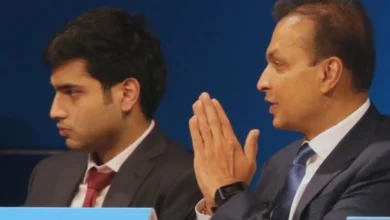Indeed, A Job Search Engine layoffs 2,200 Staff Employees.
Overall job opportunities in the US decreased by 3.5% last quarter compared to the prior year, while sponsored job volumes decreased by 33%. During the next two to three years, we anticipate that the number of job opportunities in the US will likely fall to pre-pandemic levels of about 7.5 million.

Indeed, an American job search engine that helps tens of thousands of people find their ideal jobs, has also let go of thousands of its staff. The employment search engine became the newest company to undertake significant job cuts by terminating 2,200 people, or 15% of its staff. Several digital businesses, including Amazon, Microsoft, and Twitter, have already let go of thousands of staff.
Comment from Chris Hyams, CEO of Indeed
On March 22, Indeed’s CEO, Chris Hyams, sent a letter to the impacted workers in which he stated: “I am saddened to report that I have made the painful choice to decrease our personnel through layoffs. I sincerely hoped I wouldn’t ever have to make this choice.
Every day I consider how crucial a job is in a person’s life since I am the CEO of a firm whose goal is to assist individuals in finding employment. It is extremely difficult financially and emotionally to lose a job. We are attempting to provide as much assistance as we can to each of you, the departing party, said Hyams.
Who is affected by the employment cuts according to the Indeed Layoffs?
“The layoffs at truly and Indeed Flex affect almost every team, department, level, and area. The CEO stated in a memo distributed to Indeed workers that the decisions on who and where to cut were very tough but well-considered.
“We concentrated on future-proofing the organization, bringing it into line with our strategy and goals, and minimizing inefficiencies and duplication of work.” To guarantee fairness and impartiality in this judgment, the HR, Legal, and DEIB teams and I worked closely together. No substantially disproportionate effects on women, underrepresented genders, or the underrepresented minority population in the US have been caused by the final selections, he said.
Everyone who is not in the UK, Ireland, the Netherlands, or Japan will get an email letting them know their status within an hour. The topic will read “Your Position Has Been Impacted” if your position has been removed. The topic will read “Your Position Has Not Been Impacted” if your position has not been terminated. However, there will be a lengthier delay in the UK, Ireland, the Netherlands, and Japan due to regional legislation.
Truly reveals compensation for impacted workers
If you’re leaving Indeed, you’ll get a calendar invite for a one-on-one meeting with an Indeed executive today or tomorrow, the CEO announced. It is your last day of employment. Until March 31, 2023, you’ll continue to get your usual compensation.
You will lose access to Indeed business systems today, but you will still be able to use internal email, Slack, and Workday until midnight CT on March 26, 2023, allowing you to say goodbye to friends and coworkers and remove any personal items from your laptop. Your laptop will then be remotely deleted, although you can still use it for personal purposes. All affected workers will get their bonuses at target or quota performance from January through March.
According to the severance agreement, employees will get the following as part of their severance package, with minor adjustments based on position and location:
- 16 weeks of basic pay, or, if more, two weeks for each year of service
- Four-month COBRA period (US only)
- PTO accrued (where applicable)
- Payment in cash is equal to the RSUs that will become vested on May 1. You will get a portion of the dividend for RSUs that would have vested on May 1 if you were an employee whose initial award date was August 1, 2022, or later, with the typical one-year vesting cliff disregarded. The distribution will be determined using the stock’s closing price on February 1. You will be compensated for the difference if the closing price on May 1 is higher.
- The six-month period of continuous career placement services
- Twelve-month access to continuous mental health care
Why did Indeed fire 2,200 workers?
As we stated at the previous Quarterly Update meeting, it is obvious the employment market will continue to cool after the recent post-COVID boom,” CEO Chris Hyams wrote in a memo to the staff. The likelihood that HR Tech revenue would decrease in FY2023 and maybe again in FY2024 is rising.
Overall job opportunities in the US decreased by 3.5% last quarter compared to the prior year, while sponsored job volumes decreased by 33%. During the next two to three years, we anticipate that the number of job opportunities in the US will likely fall to pre-pandemic levels of about 7.5 million.
“Our organization is just too huge for what lies ahead, with potential employment vacancies at or below pre-pandemic levels. To make sure that all of our energy is focused on making investments in the future, we need clarity, focus, and urgency. Although we have persevered longer than many other businesses, the income patterns cannot be disputed. So I’ve decided to do something right away,” he stated.
The CEO also said that he would reduce his basic salary by 25%. Furthermore, he stated that more than 75% of his “total remuneration is directly related to Indeed revenue growth, and is at risk given present trends.”
In March 2023, Accenture, Amazon, and Meta let off 38,000 workers, many of them Indian.
Given that numerous tech companies continue to lay off thousands of employees, it appears that the hiring season won’t be ending anytime soon. Amazon announced the layoff of up to 18,000 workers earlier this year, and major tech firms like Google also reduced headcounts by 12,000 workers. Meta, Amazon, and Accenture have all eliminated 38,000 employees in March alone. Numerous Indian employees who had been employed by these organizations had also been let go, and they vented their resentment on LinkedIn.![]()
Employees who have been laid off have voiced unhappiness with how large corporations have handled layoffs, claiming that there has been little transparency or fast delivery of severance pay, and that some have been locked out of their systems without notice. According to estimates, hundreds of Indians would be let off in March 2023. This is all the information you need to know about the layoffs this month.
Accenture announced the termination of 19,000 workers.
Accenture disclosed in an SEC filing that it will lay off 19,000 workers to save expenses. The corporation forecast that in the upcoming quarters, profits and revenue would expand at a slower rate. As a result, steps are being taken to use the income to grow the company and make investments that would help the IT firm. Moreover, Accenture affirmed that it intends to increase staffing in the second half of 2023.
“Although we continue to employ, particularly to support our strategic growth targets, we commenced efforts to simplify our operations and change our non-billable corporate services to decrease expenses during the second quarter of fiscal 2023.
In March 2023, Meta laid off 10,000 additional employees.
Meta has previously laid off 11,000 employees and only lately announced the termination of 10,000 more. Technically speaking, this indicates that the IT business has let go of up to 21,000 workers. Mark Zuckerberg, the CEO of Meta, listed a few reasons why the firm had to choose to lay people off. Increasing competition, slower revenue growth, the recession, and excessive recruiting were a few of the causes. All of these factors result in the dismissal of thousands of workers.
Nevertheless, Meta also pledged to provide severance compensation to the affected employees, something Accenture does not appear to be doing based on its silence on the matter. The CEO has also expressed regret at the loss of brilliant workers brought on by the challenging times the business is going through.
In March, Amazon cut 9,000 additional jobs.
Last but not least, Amazon just let go of 9,000 additional workers after letting go of 18,000 earlier this year. Several departments, including advertising, human resources, Twitch units, and cloud computing, have made layoffs. Layoffs have also been attributed by Amazon to over hiring and ominous economic conditions. The business has stated that the most recent round of layoffs will be finished by mid-to late-April. If we count both layoffs, the e-commerce behemoth has sacked 27,000 workers thus far.
The CEO of Amazon, Andy Jassy, said when the layoff was announced, “This was a painful choice, but we think it is best for the firm long term. Leaders from throughout the firm collaborate with their teams to identify what investments they want to make for the future as part of our yearly planning process, giving priority to what matters most to customers and the long-term sustainability of our companies. Before this one, most of our businesses significantly increased personnel over several years.
edited and proofread by nikita sharma




